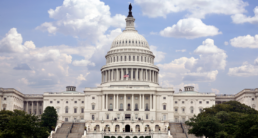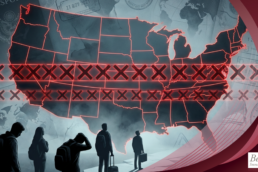This is one of the most common questions we’re getting right now—and it’s completely understandable. With an uptick in news stories about visa holders and even permanent residents being denied entry to the U.S., many travelers are feeling uncertain. So… what’s really going on?
Let’s break it down with some clarity.
What’s Behind the Headlines?
Yes, there have been reports of people being stopped at the border or denied entry—but these stories are not new. They happen under every administration. What’s different right now is that these stories are making the news more often, and they tend to get a lot of clicks.
It’s important to remember that the media often lacks access to the full picture. Government agencies like CBP and USCIS have far more background information on individual travelers than the public does. So, while these cases may sound shocking or unfair, we can’t always know all the facts behind them.
Should You Be Traveling to the U.S. Right Now?
That really depends on you. There’s no blanket answer here—it all comes down to your individual immigration history, travel background, and even current world events.
Before planning travel to the U.S., ask yourself (or talk to your attorney about) the following:
Key Questions Immigration Officers May Consider:
✅ Have you had any prior immigration violations?
Things like overstaying a visa, unauthorized work, or prior issues with USCIS or CBP can raise red flags.
✅ Have you had trouble at the border before?
If you’ve been denied entry, placed in secondary inspection, or turned away at a port of entry, be extra cautious.
✅ Do you have any criminal history?
Even old or seemingly minor charges can trigger additional screening or grounds of inadmissibility.
✅ Are you affiliated with any individuals or groups that might be considered a national security risk?
Yes, affiliations matter.
✅ Have you had a previous visa denial?
If so, immigration officers will want to know what’s changed since then.
✅ Have you posted anything on social media that could be perceived as threatening or harmful to the U.S.?
Social media is reviewed—be thoughtful about your online presence.
✅ What’s the current relationship between your home country and the U.S.?
In times of diplomatic tension, some nationalities may face increased scrutiny.
✅ Have you recently traveled to countries with national security concerns (e.g., Iran, North Korea, Syria, or Cuba)?
The Role of Discretion—and Why Your Behavior Matters
Immigration officers at the border or at U.S. embassies abroad have broad discretion when it comes to deciding whether to issue a visa or admit someone to the U.S. That means how you present yourself matters.
Always be polite, honest, and clear.
Misrepresentation—even unintentional—can result in serious consequences, including a permanent bar from entering the U.S. Never exaggerate, lie, or downplay important facts when speaking with a government official.
Final Thoughts: Should You Travel?
For many non-citizens, traveling to the U.S. is still very much possible. But whether you should travel right now depends on your unique circumstances.
Concerned about U.S. entry? Learn what factors immigration officers consider and get expert guidance from Berardi Immigration Law.
Ready to have Berardi on your side?
Whether you’re a business looking to hire or a professional hoping to relocate, immigration law can be complicated. But you don’t have to do it alone. Put our experience to work for you.



